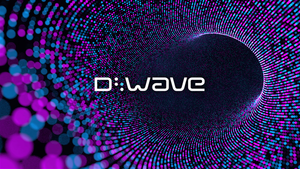
The educational sector, particularly its technology-driven segment, is on the cusp of a significant transformation, with a strong bullish sentiment prevailing among investors as of October 2025. While not a "recent rally" in the traditional sense of a past event, market analysts and industry projections point towards an anticipated surge in educational stock valuations. This projected rally is primarily fueled by the accelerating integration of Artificial Intelligence (AI), the widespread adoption of digital and hybrid learning models, and a burgeoning demand for lifelong learning and upskilling.
This optimistic outlook suggests that the robust growth seen in the EdTech space, which gained considerable momentum during the pandemic, is not only sustainable but set to intensify. The implications for the financial markets are substantial, signaling a potential shift in investment focus towards innovative educational companies that are effectively leveraging cutting-edge technologies to redefine learning experiences and address the evolving needs of students and professionals globally.
The Dawn of a New Educational Era: AI, Digitalization, and Investment Surge
The anticipated rally in educational stocks around October 2025 is predicated on several powerful, converging trends. At the forefront is the transformative potential of Artificial Intelligence and Machine Learning (ML). AI is rapidly becoming an indispensable tool in education, enabling highly personalized learning pathways, intelligent tutoring systems, and adaptive content delivery. The global AI in education market alone is projected to reach $5.3 billion in 2025, with a staggering compound annual growth rate (CAGR) of 38.3% expected through 2034. Companies that can effectively harness AI to enhance student engagement, streamline administrative tasks, and generate innovative educational content are exceptionally well-positioned to capitalize on this wave.
The shift towards digital, online, and hybrid learning models, initially accelerated by the COVID-19 pandemic, continues to be a fundamental driver. This paradigm shift offers unprecedented accessibility and flexibility, catering to diverse learning styles and schedules. Concurrently, the imperative for lifelong learning and professional upskilling in a rapidly evolving technological landscape is creating immense demand for flexible and accessible educational solutions, from corporate training programs to specialized post-secondary courses in high-demand fields like healthcare and technology. This confluence of factors has rekindled significant private equity interest in the education sector, viewing its stability, scalability, and long-term return potential as highly attractive. The global education sector, valued at nearly $10 trillion, is now seen as a dynamic and fertile ground for investment.
Initial market reactions to these projections are already manifesting as increased investor confidence in the EdTech sector, recognizing its long-term growth opportunities. This confidence is expected to spur further mergers, acquisitions, and strategic partnerships as companies seek to expand their technological capabilities, market reach, and service offerings. Innovation, particularly in personalized learning and AI-driven solutions, coupled with a focus on accessibility and social impact, is proving to be a magnet for investment. While the broader market in October 2025 presents a mixed picture with strong indices amidst inflation worries, the education sector's growth drivers appear more fundamental and resilient, suggesting a robust performance even in volatile market conditions.
Companies Poised for Growth and the Challenges Ahead
The anticipated rally in educational stocks presents a dynamic landscape for public companies operating within the sector, creating both significant opportunities for growth and potential pitfalls for those unable to adapt. Companies deeply invested in EdTech and AI integration are expected to be the primary beneficiaries. For instance, major online education providers like Coursera (NYSE: COUR) and Chegg (NYSE: CHGG), which have already established strong digital learning platforms, stand to gain significantly by further embedding AI for personalized learning paths and content creation. Their ability to cater to both traditional students and the burgeoning lifelong learning market positions them favorably. Similarly, companies specializing in educational software and digital tools, such as PowerSchool Holdings (NYSE: PWSC), could see increased demand as institutions upgrade their digital infrastructure to support hybrid models and data-driven instruction.
Conversely, traditional educational publishers or service providers that are slower to embrace digital transformation and AI integration may struggle. Those with outdated business models or a heavy reliance on physical materials could face declining revenues and market share. However, even traditional players like Pearson (LSE: PSON) are actively pivoting towards digital and AI-driven solutions, indicating a widespread recognition of the need for adaptation. Companies that successfully pivot will thrive, while those that fail to innovate risk being left behind. Furthermore, the increasing demand for specialized vocational and skills-based training could benefit institutions and platforms focused on these areas, addressing critical workforce needs.
The financial health and strategic agility of these companies will be crucial. Those with strong balance sheets, a proven track record of innovation, and effective partnerships with educational institutions are likely to outperform. The competitive landscape is also intensifying, with numerous startups and established tech giants entering the EdTech space, driving the need for continuous differentiation and value proposition enhancement. Investors will be closely scrutinizing companies' R&D investments in AI, their ability to scale personalized learning solutions, and their capacity to navigate the evolving regulatory landscape surrounding data privacy and AI ethics in education.
Broader Implications: A Shifting Educational Paradigm
The projected rally in educational stocks is more than just a market phenomenon; it signifies a profound shift in the broader educational paradigm. This event aligns perfectly with the overarching global trend towards digital transformation and the increasing recognition of education as a continuous, lifelong process. The global EdTech market, projected to reach an estimated USD 549.6 billion by 2033, underscores the scale of this transformation. This growth isn't isolated; it creates significant ripple effects across various sectors. For instance, technology companies providing AI development tools, cloud infrastructure, or cybersecurity solutions will find new opportunities as educational institutions and EdTech firms become major clients. Publishers and content creators are compelled to innovate, moving beyond static textbooks to interactive, adaptive digital learning materials.
Regulatory bodies and policymakers are also grappling with the implications of this rapid evolution. The integration of AI in education raises critical questions around data privacy, algorithmic bias, and the ethical use of AI in assessing student performance. Governments are likely to introduce new guidelines and policies to ensure equitable access to technology, maintain educational standards, and protect student data. This could create both compliance challenges and opportunities for companies that specialize in secure and ethical EdTech solutions. Historically, periods of significant technological advancement, such as the rise of personal computing or the internet, have similarly transformed education, leading to new market leaders and investment cycles. The current AI-driven wave is comparable in its potential to redefine learning and teaching methodologies.
Moreover, the emphasis on lifelong learning and upskilling has wider societal implications. As industries evolve rapidly, a skilled workforce is paramount for economic growth. Educational providers that can deliver agile, relevant, and accessible training programs will play a crucial role in addressing skills gaps and fostering economic resilience. This creates a symbiotic relationship between the education sector and the broader economy, where investments in innovative learning solutions directly contribute to workforce development and national competitiveness. The focus on personalized learning also promises to address long-standing issues of educational inequity, offering tailored support to diverse student populations, though ensuring equitable access to these advanced tools remains a key challenge.
The Road Ahead: Innovation, Adaptation, and Strategic Growth
Looking ahead, the educational stock market is poised for a period of dynamic evolution driven by continued innovation and strategic adaptation. In the short term, we can expect to see an acceleration of mergers and acquisitions as companies consolidate market share, acquire specialized AI capabilities, or expand into new geographic or subject matter domains. Partnerships between EdTech companies, traditional educational institutions, and even corporate training departments will become increasingly common, blurring the lines between formal and informal learning. Companies that demonstrate clear pathways to profitability through scalable digital solutions and effective AI integration will likely attract the most investor attention.
Long-term possibilities include the emergence of entirely new educational models, potentially leveraging virtual and augmented reality alongside AI to create immersive and highly interactive learning environments. The concept of a "digital twin" for learners, where AI tracks progress and customizes every aspect of their educational journey, could become a reality. This will necessitate continuous R&D investment and a willingness to pivot strategies in response to technological advancements and evolving learner needs. Market opportunities will arise for companies specializing in niche areas, such as AI ethics in education, cybersecurity for learning platforms, or specialized content for emerging industries.
However, challenges remain. Macroeconomic volatility, potential regulatory headwinds regarding data privacy and AI governance, and the need to bridge the digital divide to ensure equitable access to advanced learning tools are significant hurdles. Companies will need to navigate these complexities while maintaining a focus on pedagogical effectiveness and student outcomes. Potential scenarios range from a sustained, robust growth phase for the entire EdTech sector, to a more selective market where only truly innovative and well-managed companies thrive, while others struggle to keep pace with the rapid technological advancements and changing market demands. The ability to effectively measure and demonstrate the impact of AI-driven learning solutions on student success will be a critical differentiator.
Navigating the Evolving Educational Investment Landscape
In summary, the educational sector is at an inflection point, with strong projections indicating a sustained rally in educational stocks driven by the pervasive influence of AI, the permanence of digital learning, and the escalating demand for lifelong skills. Key takeaways include the critical importance of technological innovation, particularly in AI and personalized learning, and the strategic advantage held by companies that can effectively integrate these into scalable, accessible platforms. The market is moving towards a future where education is more flexible, individualized, and technology-enhanced, fundamentally altering how knowledge is acquired and skills are developed.
Moving forward, the market will likely differentiate between companies that merely adopt technology and those that fundamentally rethink education through technology. Investors should assess companies based on their R&D pipeline in AI, their capacity for global scalability, their commitment to data privacy and ethical AI use, and their ability to forge strategic partnerships. The broader significance of this trend extends beyond financial returns, promising to reshape workforce development, address societal skills gaps, and potentially foster a more equitable and effective global learning ecosystem.
What investors should watch for in the coming months are regulatory developments concerning AI in education, further consolidation within the EdTech space, and the emergence of new technologies that could disrupt current market leaders. The performance of companies like Coursera (NYSE: COUR), Chegg (NYSE: CHGG), and PowerSchool Holdings (NYSE: PWSC) will serve as bellwethers for the sector's health. While the outlook is overwhelmingly positive, a vigilant approach to market dynamics and a deep understanding of the underlying technological and pedagogical shifts will be essential for navigating this exciting, yet complex, investment landscape.
This content is intended for informational purposes only and is not financial advice







